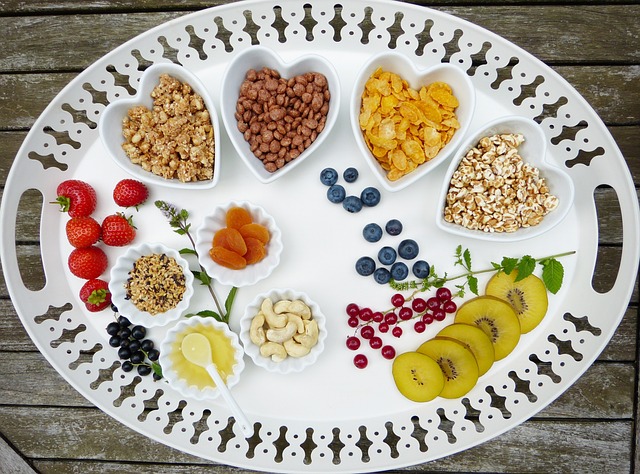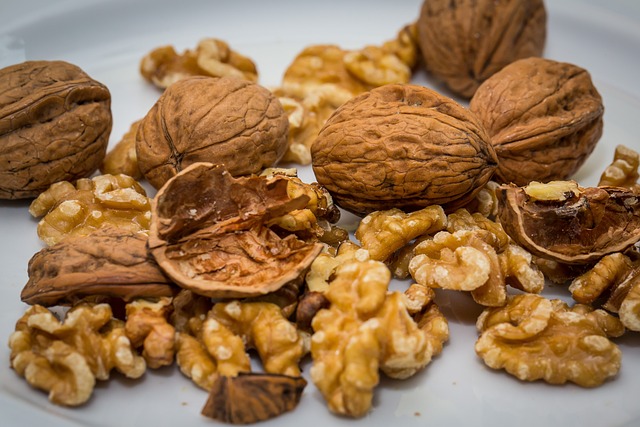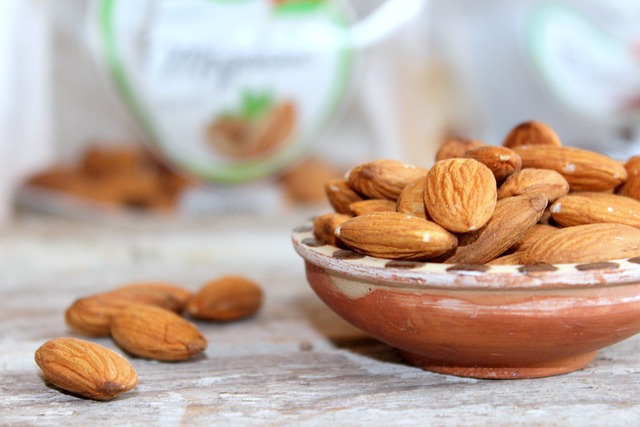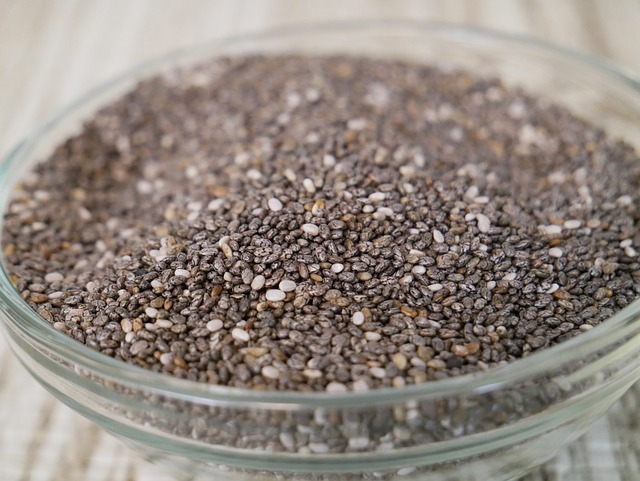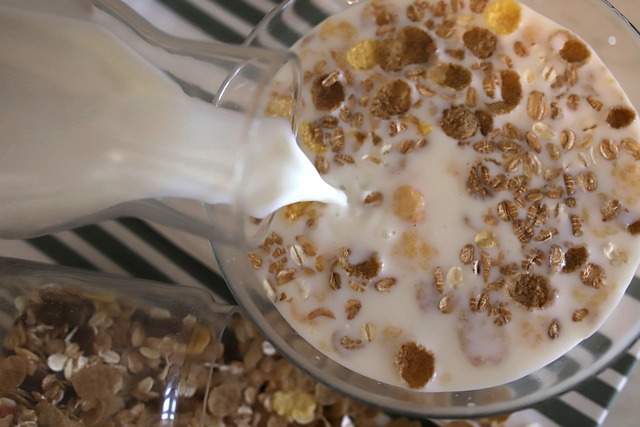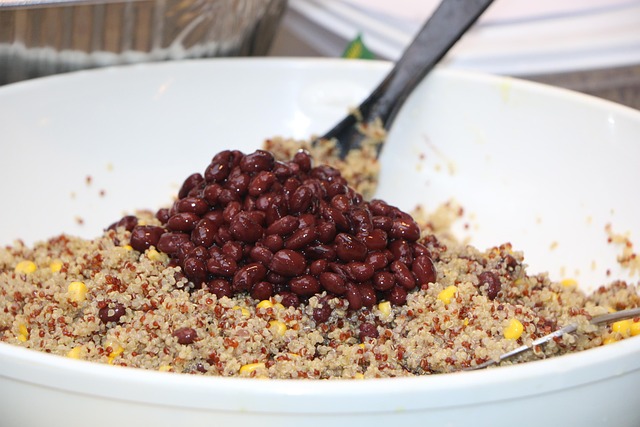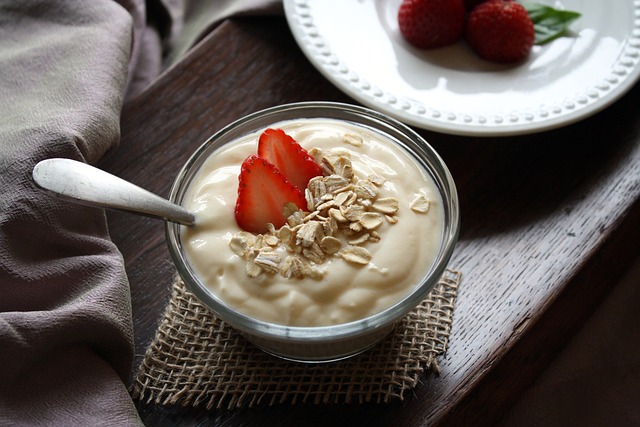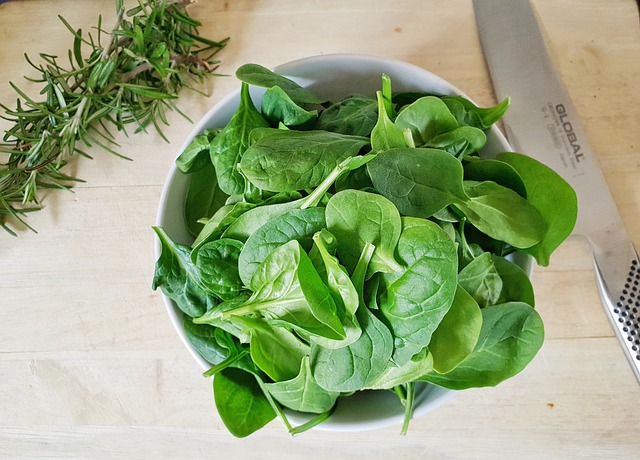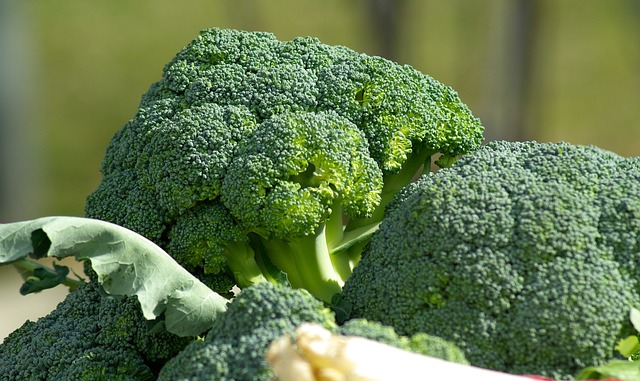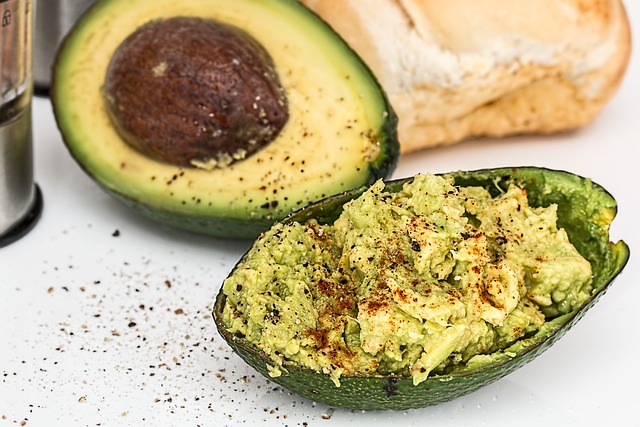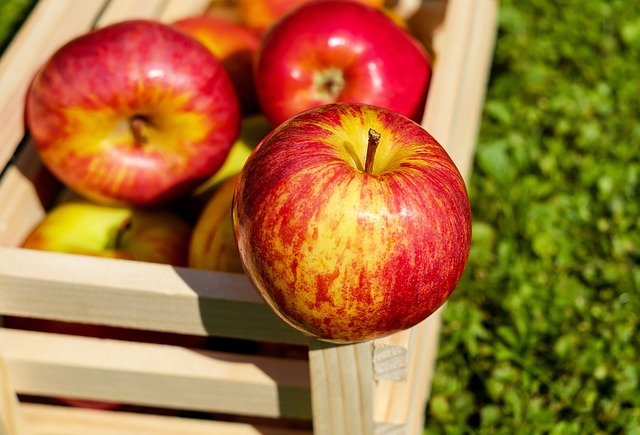20 Best Organic Foods for Healthy Lifestyle which is one of the best strategies for promoting general health and preventing chronic diseases is to eat a diet high in natural, whole foods. Natural foods are ones that are low in artificial ingredients, high in vital nutrients, and little processed. The top 20 natural foods will be discussed in this article, along with their nutritional advantages and suggestions for incorporating them into your regular diet.
1. Walnuts
Antioxidants and omega-3 fatty acids are abundant in walnuts. They lessen inflammation and enhance brain function. Use them in baking, as a snack, or as a garnish for salads.
Nutritional Advantages of walnuts
- Omega-3 Fatty Acid-Rich : A good plant-based source of alpha-linolenic acid (ALA), an omega-3 fatty acid, is walnuts. Omega-3 fatty acids are well known for their ability to promote brain function, lower inflammation, and protect the heart.
- Packed with Antioxidants: Antioxidants like polyphenols and vitamin E, which are abundant in walnuts, help fight oxidative stress and shield cells from harm.
- Rich in Fiber and Protein: Walnuts are an excellent option for weight control and digestive health because of their nutrients, which also help with satiety.
- Promotes the Health of the Brain: Walnuts’ omega-3s, antioxidants, and polyphenols have all been connected to better cognitive performance and a lower risk of neurodegenerative illnesses.
Tips for Portion Control
Despite its rich nutritional value, walnuts are high in calories, thus moderation is essential. Approximately 185 calories are contained in a serving size of 1 ounce (14 halves). To stay away from additional sugars or salts, choose unsalted and unflavored kinds.
2. Almonds
Protein, vitamin E, and good fats can all be found in almonds. They support healthy skin and decrease cholesterol. Almonds can be added to baked products, salads, or yogurt, or they can be eaten as a snack.
Nutritional Advantages of almonds
- Packed with Good Fats: Monounsaturated lipids, which are heart-healthy fats that help lower harmful cholesterol levels and the risk of cardiovascular disease, are abundant in almonds.
- High in Vitamin E: Vitamin E, a potent antioxidant that shields cells from oxidative stress and supports healthy skin and hair, is abundant in almonds.
- Rich in Protein: Almonds are a fantastic snack for energy and muscle repair since they contain roughly 6 grams of high-quality plant-based protein per serving.
- Loaded with fiber: Packed with Fiber Dietary fiber, which is abundant in almonds, helps keep blood sugar levels steady, supports digestive health, and encourages fullness.
- Provides Important Nutrients: Magnesium, calcium, and potassium, which are necessary for strong bones, robust muscles, and a sound neurological system, are all found in almonds.
Tips for Portion Control
Almonds are quite nutrient-dense, but because of their high calorie level, moderation is key. About 160 calories are contained in a typical serving size of 1 ounce (23 almonds). To stay away from added sugars and salts, choose unsalted and flavorless almonds.
3. Chia Seeds
Chia seeds are little but powerful, full of protein, fiber, and omega-3 fatty acids. They give you long-lasting energy and help with digestion. For an added nutritional boost, use chia seeds into cereal, smoothies, or puddings.
Nutritional Advantages of chia seeds
- High in Omega-3 Fatty Acids: One of the most abundant plant-based sources of alpha-linolenic acid (ALA), a kind of omega-3 fatty acid, is chia seeds. Both heart health and brain function depend on these lipids.
- High in Fiber: Chia seeds, which contain about 11 grams of fiber per ounce (28 grams), aid in blood sugar regulation, healthy digestion, and the promotion of feelings of fullness.
- A Good Plant-Based Protein Source: Chia seeds are a complete protein source that is perfect for vegans and vegetarians since they include all nine necessary amino acids.
- Packed with Antioxidants: Antioxidants found in chia seeds shield the body from oxidative stress and lower inflammation.
- Packed with Micronutrients: Rich in calcium, magnesium, phosphorus, and manganese, chia seeds are vital for healthy bones, the synthesis of energy, and general wellbeing.
Tips for Portion Control
Although chia seeds are high in nutrients, it is important to eat them in moderation. About 1-2 teaspoons (15-30 grams) per day is the usual serving size. Since chia seeds grow in liquid, always hydrate them before eating to avoid any digestive issues.
4. Oats
Whole grains like oats are rich in soluble fiber, which lowers blood sugar and promotes heart health. For a filling breakfast, start your day with a bowl of oats garnished with nuts and fruits.
Health benefits of oats
- Promotes Heart Health; Oats include beta-glucan, which lowers harmful LDL cholesterol and enhances cardiovascular health in general.
- Helps with Weight Control: Because they are satisfying and encourage fullness, oats can help regulate appetite and prevent overeating.
- Enhances Digestive Health: Oats’ high fiber content maintains a healthy gut microbiota and encourages regular bowel motions.
- Maintains Blood Sugar Stability: Because of their soluble fiber and low glycemic index, oats are a great option for diabetics because they slow down the absorption of sugar.
- Increases Vitality: Oats are perfect for breakfast or pre-workout meals since they are a source of complex carbohydrates and protein that provide you long-lasting energy.
Tips for Portion control
Oats are very nutritious, but because they are high in calories, it’s crucial to watch portion sizes. A typical serving size is roughly 40 grams, or 1/2 cup, of dry oats, which greatly expand when cooked. Choose minimally processed quick oats instead of ones with additional sugars if you are controlling your blood sugar levels.
5. Lentils
A mainstay of vegetarian and vegan diets, lentils are rich in plant-based protein, fiber, and iron. They are simple to prepare and can be added to salads, curries, stews, and soups.
Health benefits of lentils
- Promotes Heart Health: Because of their high fiber, folate, and potassium content, lentils can lower harmful LDL cholesterol levels and enhance cardiovascular health in general.
- Helps in Weight Control: Lentils are a great option for weight management since they are high in protein and fiber, which promote fullness and aid with appetite control.
- Enhances Digestive : Health Regular bowel movements and a healthy gut microbiota are supported by the high fiber content of lentils.
- Increases Vitality: Lentils, which are high in iron, promote oxygen flow in the body and help avoid anemia, which increases energy and decreases weariness.
- Encourages a Healthy Pregnancy: Folate, which is essential for prenatal growth and lowering the risk of neural tube abnormalities, is abundant in lentils.
Tips for portion control
About one cup of cooked lentils provides about 230 calories per serving. Even though lentils are high in nutrients, some people may experience bloating if they eat a lot of them, particularly if their diet is low in fiber. Increase your consumption gradually to give your digestive system time to adapt.
6. Quinoa
Quinoa is a complete protein that contains all nine necessary amino acids and is a gluten-free whole grain. It can be used as a morning cereal or as a base for salads, soups, or stir-fries.
Health benefits of quinoa
- Encourages the Growth and Repair of Muscles: Particularly for athletes and active people, quinoa’s complete protein content aids in muscle growth, repair, and recuperation.
- Enhances Heart Health: Quinoa’s fiber, magnesium, and antioxidants lower blood pressure, cholesterol, and enhance cardiovascular health.
- Enhances Digestive Health: The high fiber content of quinoa promotes a healthy gut microbiota and helps to maintain regular bowel motions.
- Helps in Weight Control: Quinoa is a great addition to a diet for weight reduction or maintenance since it is satisfying and aids in hunger control.
- Promotes Bone Health: Quinoa is especially advantageous for people following dairy-free diets since it contains calcium, magnesium, and phosphorus, all of which support strong and healthy bones.
Tips for portion control
One cup of cooked quinoa is a typical serving size, and it contains about 220 calories. Even though quinoa is high in nutrients, it’s crucial to watch portion sizes, particularly if you’re watching your caloric intake. Because quinoa naturally contains a lot of oxalates, people who are at risk for kidney stones should only eat it seldom.
7. Greek Yogurt
A dairy product high in protein, Greek yogurt also has probiotics to support digestive health. To stay away from additional sugars, choose simple, unsweetened options. Savor it as a snack, as a base for smoothies, or with fruit and honey.
Health benefits of greek yogurt
- Encourages the Growth and Repair of Muscles: Greek yogurt’s high protein content makes it the perfect post-workout snack to promote muscle building and recuperation.
- Enhances Digestive Health: Greek yogurt’s probiotics aid in preserving a balanced population of gut microorganisms, which enhances digestion and lessens bloating and constipation symptoms.
- Enhances Bone Health: Greek yogurt’s calcium and phosphorus help build strong bones and lower the risk of osteoporosis.
- Helps in Weight Control: Greek yogurt is a fantastic complement to a diet for weight reduction or maintenance because it is satisfying and aids in hunger control.
- Promotes Heart Health: When incorporated into a balanced diet, low-fat or non-fat Greek yogurt can help lower cholesterol and lower the risk of heart disease.
Tips for portion control
One cup (245 grams) of Greek yogurt is a common serving size, and it has roughly 150 calories (non-fat), 10 grams of protein, and a substantial quantity of calcium. To get the most health advantages, choose Greek yogurt that is unsweetened and has few additional ingredients. Due to its decreased lactose content, Greek yogurt is frequently tolerated by people with lactose intolerance; nevertheless, if you’re unsure, it’s recommended to speak with a healthcare professional.
8. Eggs
In addition to being a complete protein source, eggs also contain vital vitamins and minerals. They can be used in baking and cooking, as well as boiling, scrambled, and poached.
Health benefits of eggs
- Encourages the Growth and Repair of Muscles: Eggs are the perfect food for athletes and active people because of their high-quality protein, which aids in muscle growth and repair.
- Encourages Heart Health: Contrary to popular belief, eating eggs in moderation can help heart health since they include heart-healthy lipids and minerals like choline.
- Enhances Brain Activity: Eggs include choline, which promotes neuronal signaling, memory, and cognitive function. It is particularly crucial for the development of the fetal brain during pregnancy.
- Enhances Eye Health: Egg yolks contain lutein and zeaxanthin, which help prevent age-related vision issues like cataracts and macular degeneration.
- Helps in Weight Control: Eggs are a great option for healthy snacking and weight management because they are satisfying and aid with hunger control.
Tips for portion control
For the majority of healthy people, eating one to three eggs a day is safe and healthy. For individualized guidance, people with certain medical issues, such as diabetes or high cholesterol, should speak with a healthcare professional.
9. Salmon
Omega-3 fatty acids, which are essential for heart and brain function, are abundant in salmon. Vitamin D and high-quality protein are also abundant in it. Salmon is a healthy main course that can be pan-seared, baked, or grilled.
Health benefits of salmon
- Heart Health: By reducing blood pressure, cholesterol, and inflammation, omega-3 fatty acids found in salmon help minimize the risk of heart disease.
- Brain Function: Eating salmon on a regular basis is associated with better cognitive function and a lower risk of cognitive decline.
- Joint Health: Omega-3 fatty acids also lessen joint discomfort and arthritis symptoms.
Tips for portion control
Aim for a serving size of 3–4 ounces (85–113 grams), or about the size of a deck of cards, to keep portion sizes under control when eating salmon. For accuracy, use the “palm of your hand” approach or a food scale. To prevent overindulging, portion the salmon in advance of cooking and serve it with smaller portions of nutritious grains and lots of veggies. Avoid high-calorie sides and sauces and choose lighter alternatives like olive oil or lemon. If dining out, think about packing half of your meal to go. Control can also be maintained by preparing meals in advance and serving from separate portions.
10. Sardines
Sardines are tiny, fatty fish that are high in vitamin D, calcium, and omega-3 fatty acids. They lessen inflammation and promote bone health. Savor them as a spaghetti topper, in salads, or on whole-grain crackers.
Health benefits of sardines
- Cardiovascular Health: Sardines’ omega-3 fatty acids can lower cholesterol and lower the risk of heart disease.
- Bone Health: Rich in calcium, sardines support healthy teeth and bones.
- Brain performance: Better cognitive performance and a decreased incidence of mental deterioration are also associated with omega-3 fatty acids.
Tips for portion control
Adults typically eat 3 to 4 ounces (about the size of a small can) of sardines. To balance your meal, you might serve them with healthful grains or vegetables. When consumed on a regular basis, sardines provide numerous health advantages and are a handy, nutrient-dense choice.
11. Carrots
The most well-known benefit of carrots is their high vitamin A concentration, which promotes healthy skin and eyes. They are a low-calorie, crunchy snack that can be roasted, cooked, or eaten raw.
Health benefits for carrots
- Vitamins: Carrots include vitamin A, which promotes eye health by lowering the risk of night blindness and preserving eyesight.
- Digestive Health: Carrot fiber helps avoid constipation and supports a healthy digestive system.
- Heart Health: By lowering blood pressure and cholesterol, antioxidants and potassium support heart health.
Tips for portion control
Typically, a serving of carrots consists of 1/2 to 1 cup of raw or cooked carrots, which offers a decent nutritional balance without being excessively high in calories. A balanced meal can be made by combining carrots with lean proteins or healthy fats. There are many ways to eat carrots, which are a healthful and adaptable vegetable.
12. Spinach
Iron, calcium, and vitamins A and K are abundant in this leafy green. Spinach increases vitality and promotes bone health. Blend it into green smoothies, sauté it with garlic as a side dish, or use it as a foundation for salads.
Health benefits of spinach
- Bone Health: Spinach contains vitamin K, which is essential for calcium metabolism, maintaining healthy bones and lowering the incidence of fractures.
- Eye Health: Antioxidants lutein and zeaxanthin shield the eyes from damaging light and guard against vision issues.
- Digestive Health: Spinach’s fiber helps preserve gut health, lessen constipation, and encourage a healthy digestive system.
- Anti-Inflammatory: Compounds found in spinach may help lower the risk of chronic illnesses like heart disease by reducing inflammation in the body.
Tips for portion control
One cup of raw spinach or half a cup of cooked spinach is the standard serving size. You might need to use extra raw spinach to get a serving size after cooking it because it wilts down a lot. Spinach offers a number of health advantages with few calories and is simple to add to many different recipes.
14. Broccoli
A cruciferous vegetable high in fiber, vitamin C, and folate is broccoli. It promotes intestinal health and has potent anti-cancer effects. Broccoli can be added to casseroles and stir-fries or steamed or sautéed as a side dish.
Health benefits of broccoli
- Cancer Prevention: Research has examined the potential of broccoli’s antioxidants and chemicals, like sulforaphane, to lower the risk of developing several types of cancer.
- Heart Health: By supporting healthy blood arteries, lowering cholesterol, and reducing inflammation, broccoli helps to maintain heart health.
- Bone Health: Broccoli’s vitamin K, calcium, and magnesium content promotes healthy bones and guards against osteoporosis.
- Digestive Health: By encouraging regular bowel movements and lowering constipation, broccoli’s fiber helps maintain a healthy digestive system.
Tips for portion control
One cup of raw broccoli or half a cup of cooked broccoli is the standard serving size. In order to get the right serving size of cooked broccoli, you might need to start with more raw broccoli because it shrinks a lot when cooked. Broccoli’s strong nutritional profile and many health advantages make it a great addition to any meal.
15. Kale
Another nutrient-dense green that is high in vitamin C and antioxidants is kale. It works wonders for the body’s detoxification and cholesterol reduction. Kale can be baked into crispy kale chips or added to stews and soups.
Health benefits of kale
- Bone Health: Vitamin K, which is found in kale, is essential for calcium absorption and bone metabolism, which strengthens bones and lowers the risk of fracture.
- Antioxidant Properties: Quercetin and kaempferol, two antioxidants found in kale, help prevent cellular damage and fight inflammation, which may lower the chance of developing chronic illnesses.
- Heart Health: The antioxidants, potassium, and fiber in kale help to improve blood pressure, lower cholesterol, and enhance cardiovascular health in general.
- Anti-Inflammatory: Kale’s nutrients have the potential to lower inflammation, promoting general health and lowering the risk of inflammatory diseases.
Tips of portion control
One cup of raw kale or half a cup of cooked kale is the standard serving size. You might need to use more raw kale to achieve the proper serving size after cooking because it shrinks considerably in size.
With its abundance of vitamins, minerals, and antioxidants, kale is a very adaptable and nutrient-dense vegetable that can be used in a variety of recipes.
16. Oranges
Oranges, which are well-known for their high vitamin C content, promote healthy skin and a stronger immune system. They make a delicious snack due to their inherent sweetness, or you may juice them to produce a cool beverage.
Health benefits of oranges
- Boosts Immunity: The immune system is strengthened by the high vitamin C content, which makes it simpler to fend off infections and illnesses.
- Skin Health: Vitamin C promotes the formation of collagen, which keeps skin looking young and aids in the healing of wounds.
- Heart Health: The high potassium and fiber content of oranges can lower cholesterol and control blood pressure, which will benefit the heart in general.
- Digestive Health: By encouraging regular bowel movements, orange fiber helps with digestion and may help avoid constipation.
Tips of portion control
One medium orange or half a cup of orange segments constitutes a normal portion of oranges. Oranges are a filling and nutritious snack that won’t raise your blood sugar levels as much as processed sweeteners because they are naturally sweet. Oranges are a delicious and simple method to enhance your daily vitamin intake.
17. Avocado
Avocados are a special fruit that is high in fiber, potassium, and heart-healthy monounsaturated fats. Because of their versatility, they can be added to smoothies, spreads, salads, and even sweets like chocolate mousse.
Health benefits of avocado
- Heart Health: By lowering harmful cholesterol levels, avocados’ monounsaturated fats can help minimize the risk of heart disease and stroke.
- Bone Health: Avocados include vitamin K, which aids in the absorption of calcium and promotes the strength and health of bones.
- Digestive Health: Avocado fiber promotes a healthy gut microbiota and helps control bowel motions.
- Anti-Inflammatory: Avocados’ antioxidants and good fats help the body fight inflammation, which may lower the chance of developing long-term illnesses like arthritis.
Tips of portion control
About 1/4 to 1/2 of a medium avocado, which has 80–120 calories, is the normal serving size. Portion control is crucial if you’re limiting your calorie intake because avocados are high in calories. Avocados are a fantastic complement to a balanced diet since they are a food powerhouse that is high in fiber and good fats.
18. Bananas
Bananas, being high in potassium, promote heart and muscle health. They are a well-liked snack before or after exercise because they are a great source of instant energy. Bananas can be blended into smoothies or sliced over cereal for extra nourishment.
Health benefits of banana
- Heart Health: By controlling blood pressure and cholesterol levels, bananas’ potassium and fiber content promotes heart health.
- Digestive Health: The fiber in bananas helps avoid constipation, encourages regular bowel motions, and facilitates digestion.
- Energy Boost: A favorite snack before or after exercise, bananas provide a rapid energy boost.
- Brain and Mood Health: Bananas include vitamin B6, which aids in the synthesis of neurotransmitters like serotonin, which promote cognitive and mood management.
Tips of portion control
One medium banana, which has roughly 100–120 calories, is a normal serving. Eating half a banana, which has roughly 50–60 calories, is a lower calorie option. Portion control is crucial if you are limiting your calorie intake because bananas are higher in calories than some other fruits. A fruit that is high in nutrients and has many health advantages, bananas are simple to include in your diet.
19. Apples
Apples, sometimes known as the “doctor’s fruit,” are a great source of antioxidants and fiber. They lower the risk of heart disease, support digestive health, and help control blood sugar levels. Apples can be eaten as a snack, added to salads, or baked for a nutritious dessert and topped with cinnamon.
Health benefits of apples
- Digestive Health: Apple fiber lowers the risk of constipation by facilitating digestion and regulating bowel motions.
- Heart Health: Apples’ potassium, fiber, and antioxidants can protect against cardiovascular disease, lower cholesterol, and enhance heart health.
- Weight control: Apples are a pleasant and full snack that can aid in weight management because they are high in fiber and low in calories.
- Blood Sugar Regulation: Apples are a wonderful option for sustaining stable blood sugar levels because of their low glycemic index.
Tips for portion control
One medium apple, which has between 80 and 100 calories, is a normal portion. When combined with a protein source, such as cheese or almonds, apple slices can also make a fantastic portion-controlled snack. Apples are a simple and wholesome fruit that taste either raw or cooked and can be included to both sweet and savory recipes.
20. Berries
Antioxidants, vitamins, and fiber abound in blackberries, raspberries, blueberries, and strawberries. These fruits promote brain health and reduce inflammation. They can be eaten fresh as a sugary, guilt-free treat or added to yogurt, cereals, or desserts.
Health benefits of berries
- Heart Health: Berries include antioxidants that may help decrease cholesterol and reduce inflammation, improving cardiovascular health.
- Cognitive Function: According to certain research, berry chemicals may help prevent age-related cognitive decline and enhance memory.
- Digestive Health: By encouraging regular bowel motions and nourishing good gut flora, the fiber in berries aids with digestion.
- Blood Sugar Regulation: Berries are high in fiber and have a low glycemic index, which may help diabetics control their blood sugar levels.
Tips for portion control
Depending on the variety, a typical serving of berries consists of 1/2 to 1 cup of fresh berries, or 40–80 calories. Berries are a fantastic choice for portion-controlled snacks or meal additions since they are abundant in nutrients and low in calories. Berries are a tasty and adaptable fruit that adds fiber, vital vitamins, and antioxidants to a wide range of recipes.
Tips for Natural Foods Include in Your Diet
- Plan Your Meals: To make sure you’re getting a range of nutrients, make a weekly meal plan that includes these natural foods.
- Shop Wisely: Pay close attention to the meat, dairy, and produce aisles of your supermarket. Steer clear of packaged or processed foods.
- Get ready beforehand: To make cooking and snacking easier, wash, cut, and store fruits and veggies in advance.
- Try Different Recipes: To keep your meals interesting and tasty, try different methods to prepare these natural foods.
- Pay Attention to Your Body: Observe your reactions to these items and modify your diet to meet your dietary requirements.
FAQs
Q-1. Which food is best for healthy lifestyle?
Ans. Nutrient-dense foods like fruits, vegetables, whole grains, lean meats, and healthy fats promote a healthy lifestyle. Essential vitamins, minerals, and fiber are found in foods like avocados, berries, fish, and leafy greens. For general health, it’s also critical to limit processed foods and added sugars and to stay hydrated.
Q-2. What food is 100% organic?
Ans. GMOs, synthetic chemicals, and pesticides are not used in the production of 100% organic food. With an emphasis on natural farming practices, it offers certified organic meats, grains, dairy products, and produce.
Q-3. What are the best foods to eat to be healthy?
Ans. Fruits, vegetables, whole grains, lean meats, and healthy fats like those found in nuts, avocados, and fish are the healthiest foods. These offer fiber, antioxidants, and vital nutrients for general health.
Q-4. What are benefits of organic food?
Ans. Benefits of eating organic food include lower levels of pesticides, more nutrients, improved flavor, and fewer additives. It encourages animal welfare, lowers pollution, and supports environmental sustainability. It also supports regional farmers and fights antibiotic resistance.
Q-5. Which is better organic or natural food?
Ans. Since organic food is produced without the use of artificial chemicals and adheres to stringent guidelines, it is thought to be superior to natural food in terms of both health and environmental benefits. “Natural” food doesn’t have these assurances.

